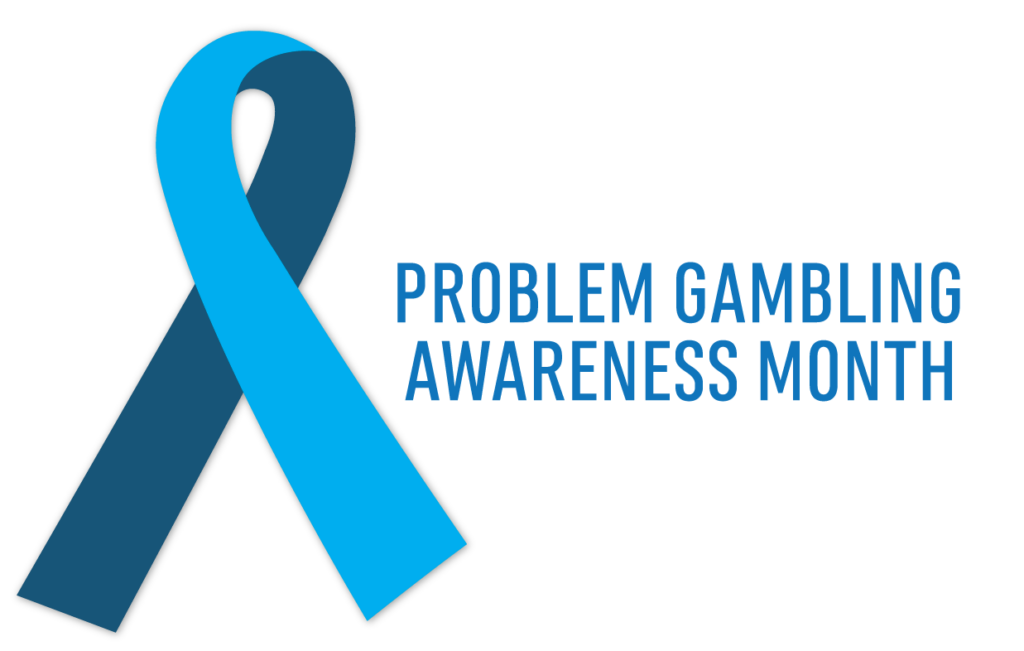
Problem Gambling Awareness Month in March is a campaign from the National Council on Problem Gambling (NCPG), the gaming industry, state health agencies, and a wide range of recovery groups and healthcare organizations to increase awareness of problem gambling and the availability of prevention, treatment, and recovery services across the country.
Problem Gambling Awareness Month (PGAM) is designed to coincide with the popular collegiate basketball tournament series known as March Madness, during which Americans are expected to wager over $3 billion.
What is problem gambling?
Problem gambling (sometimes referred to as “gambling addiction” or “gambling disorder”) is gambling behavior that is damaging to a person or their family, often disrupting their daily life and career. Anyone who gambles can be at-risk for developing a gambling problem. Gambling disorder is a recognized mental health diagnosis.
Some warning signs of a gambling problem are:
- Thinking about gambling all the time
- Feeling the need to bet more money and more often
- Going back to try to win your money back (“chasing losses”).
- Feeling restless or irritable when trying to stop or cut down.
- Gambling despite negative consequences.
- in extreme cases, problem gambling can cause bankruptcy, legal problems, job loss, family harms, and thinking about suicide.
How widespread is problem gambling in the U.S.?
- An estimated 2 million US adults (1%) meet the criteria for severe gambling problems in a given year.
- Another 4-6 million (2-3%) meet one or more of the criteria for gambling disorder and are experiencing problems due to their gambling behavior.
The National Council on Problem Gambling estimates that the annual national social cost of problem gambling is $7 billion. These costs include job loss, bankruptcy, gambling-related healthcare spending and other consequences.
Problem gambling support & resources
The National Problem Gambling Helpline (1-800-GAMBLER) is available via call, text or chat and can provide detailed information regarding treatment resources available in your area.
But you don’t have to feel out of control. Problem gambling can be managed and treated. You have options, and the Illinois Helpline offers information, support, and program referrals through the Are You Really Winning program.
Learn more about PGAM
- Get inspired by community artwork. In 2023, Are You Really Winning? invited Illinois artists over 14 to participate in this statewide campaign through the submission of artwork meant to bring a powerful voice to problem gambling issues and motivate those afflicted with gambling addiction to seek help. Click here to see more information on submissions and winners.
- Join the Illinois Council on Problem Gambling (ICPG), share about the ICPG mission to increase public awareness and support for gambling disorder, or donate to ICPG to help further their impact.
- Check out events and trainings hosted by ICPG in Illinois.
- Explore the PGAM Event Calendar to learn more about events being held by participants in Illinois and across the country.
- Use the hashtag #PGAM to help us promote Problem Gambling awareness on social media, and click here to access the 2024 Problem Gambling Awareness Toolkit.
